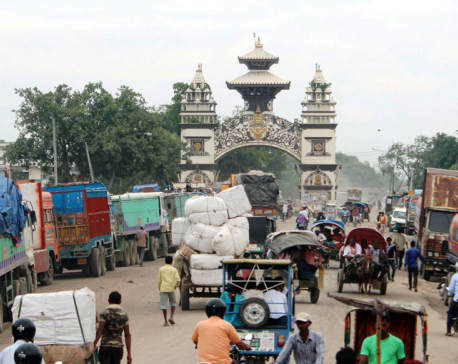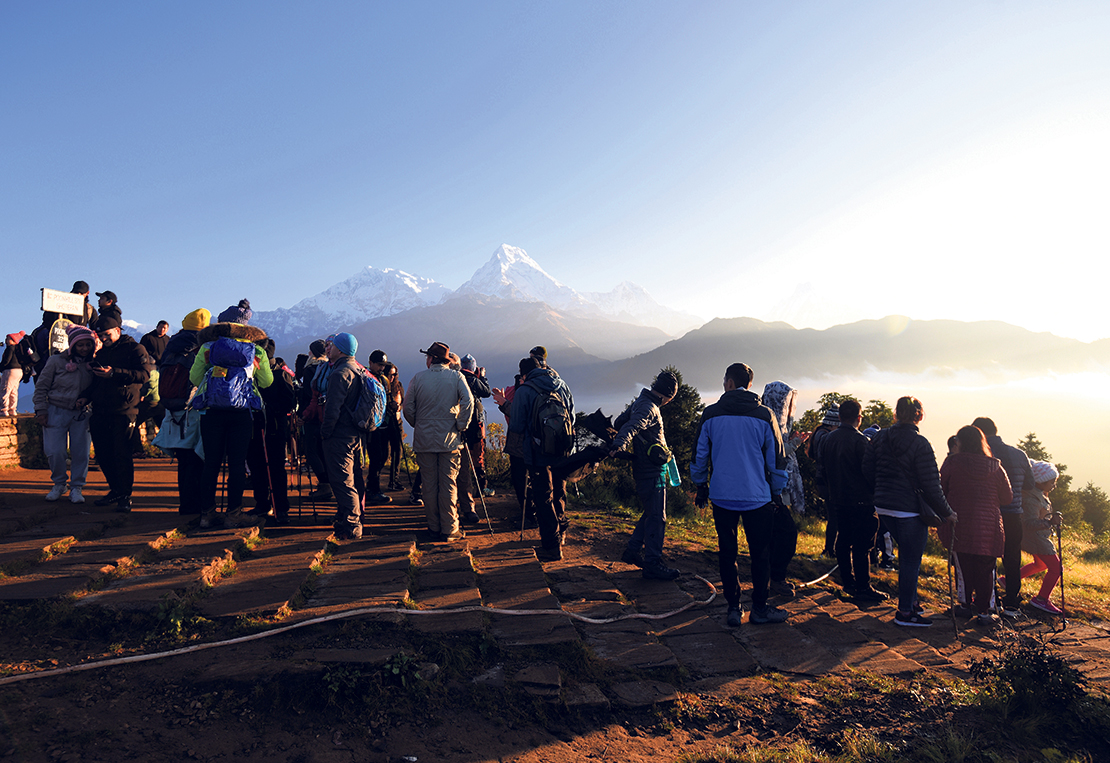
OR
Vehicular traffic at Birgunj border affects trade
Published On: July 8, 2017 10:33 AM NPT By: Ritesh Tripathi

BIRGUNJ, July 7: Nepal’s trade with India has been hugely affected due to the cross-border vehicular traffic at Birgunj.
The daily vehicular traffic in the major custom border of the country - Birgunj-Raxwal - has affected both the trade and the flow of people.
The Birgunj-Raxwal border point is of crucial importance for Nepal as it is close to the Kolkata Dry Port and has transportation links with other major cities of India.
According to Bijaya Sarawagi, an entrepreneur of the region, “Nepal has been unable to get the benefit it can from the border due to the daily vehicular traffic. If the problem is solved at the earliest, the import prices will decline a bit and the prices of commodities will also be lower than before.”
A total of 150 petroleum tankers, more than 50 containers, heavy trailers, and more than 500 trucks with different goods come to Nepal via Birgunj-Raxwal border. Vehicles carrying passengers also come to Nepal through the border.
A total of 110 three-wheelers, which are around four decades old, are still operating in the region. Likewise, 1,100 e-rickshaws which are added recently in the area also operate through Birgunj-Raxwal border.
“We have been facing the problem every day. It takes hours to cross mere 2-kilometers,” Custom Clearing Agent, Binod Pariyar, said. “Concerned authorities are not serious to solve the problem. The condition of road is also a big problem.”
About 65 to 70 percent of petroleum products, 60 percent of other commodities and hundreds of vehicles come to Nepal through that border. Industrialists say that the transport of commodities has become less effective and the products have become expensive due to the vehicular traffic.
“It takes almost two days to transport the commodities, which should normally take 10 hours. The tankers are forced to pay fines due to the delay,” said Om Prakash Sharma, President of Birgunj Chamber of Commerce and Industry. “We have tried to solve the vehicular traffic problem. As the railway barrier is off operation in the Indian side, both the sides have been facing vehicular traffic problem,” Sebantak Pokhrel, chief custom officer of Birgunj Customs Office said.
You May Like This

Vehicular traffic resumes on roads damaged by floods
KATHMANDU, Aug 15: All roads damaged by recent floods have been restored and transportation has resumed from Tuesday, government officials say. Read More...

Election fever grips trade hub Birgunj
BIRGUNJ, March 29: Birgunj sub-metropolitan city of Parsa district, the center of the six-month Madhes protests last year, has now been... Read More...

Trade through Birgunj resumes as Raxaul locals call off protest
BIRGUNJ, Dec 13: Locals of Raxaul, an Indian town along bordering Birgunj, have ended the sit-in that they had been staging... Read More...





Just In
- 286 new industries registered in Nepal in first nine months of current FY, attracting Rs 165 billion investment
- UML's National Convention Representatives Council meeting today
- Gandaki Province CM assigns ministerial portfolios to Hari Bahadur Chuman and Deepak Manange
- 352 climbers obtain permits to ascend Mount Everest this season
- 16 candidates shortlisted for CEO position at Nepal Tourism Board
- WB to take financial management lead for proposed Upper Arun Project
- Power supply to be affected in parts of Kathmandu Valley today as NEA expedites repair works
- Godepani welcomes over 31,000 foreign tourists in a year






_20220508065243.jpg)







Leave A Comment